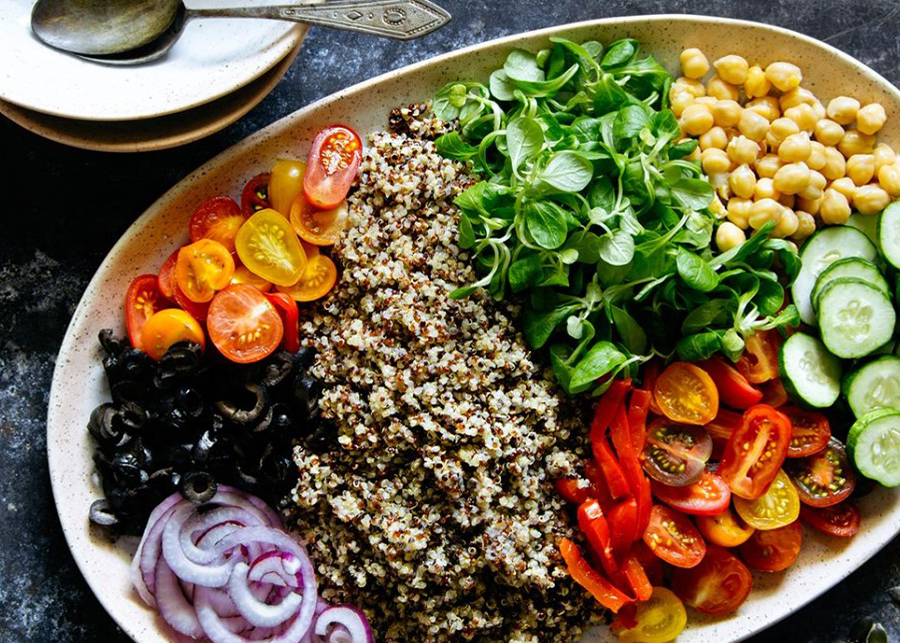While the Mediterranean diet can help with weight loss, it’s possible that you won’t see any results for a few weeks. This is because it focuses on a low-energy-density diet. Energy density refers to the number of calories found in a gram of food. Since nuts, fruits, and vegetables have fewer calories per gram than processed foods, this way of eating can help you feel fuller for longer without having to eat larger portions.
If you’re looking to lose weight and live a healthier life, consider a Mediterranean diet. This type of diet is low in energy density and plant-based. It promotes moderate consumption of red wine. However, it’s not recommended for people with certain health problems, including uncontrolled diabetes, pancreatitis, and GERD. Additionally, it may cause digestive problems in some people.

Plant-based diet
A recent study revealed that a Mediterranean-style diet could lengthen your life by more than a decade. The diet is packed with plant-based foods, which help reduce the risk of chronic illnesses and increase your lifespan. Eating more fruits and vegetables, beans and whole grains is also associated with a longer life. Fatty fish and nuts are also known to boost your health and longevity.
A Mediterranean diet has been shown to reduce the risk of chronic diseases, such as heart disease, stroke, and cancer. It is also associated with a lower risk of diabetes and obesity. The diet’s positive effects on health have been noted since the 1960s. It is associated with a reduced risk of cardiovascular disease, cancer, and neurodegenerative diseases, as well as decreased mortality.
According to one large population-based study, women who followed a Mediterranean diet were at a lower risk of developing Parkinson’s disease later in life. This was especially true for women over the age of 65. The researchers found that an increase of one unit of Mediterranean dietary adherence was associated with a 29% lower risk of Parkinson’s disease.
Low energy density
The Mediterranean diet is a relatively low-energy diet, containing mainly plant-based and grain-based foods. It has historically been considered inexpensive and a staple of the wealthy, but in recent years has become a trendy, expensive option for the average American. Some researchers believe that this diet may soon become the cultural standard for low-energy diets.
Studies have shown that low-energy-dense diets promote healthier living. They are associated with less alcohol consumption and more leisure physical activity. Also, those who follow a low-calorie diet are more likely to be non-smokers. These findings highlight the need for more research into low-energy diets.

The low-energy density of the Mediterranean diet offers several benefits, including a low- cost, high-nutrient diet. It also has a high social acceptability, which can help improve health. It also allows for the inclusion of a variety of low-cost foods into the diet.
Healthy
The Healthy Mediterranean diet focuses on vegetables, which should make up half of your plate. Eating plenty of vegetables will provide essential phytonutrients, vitamins, and trace minerals. Vegetables also protect against diseases, such as
cardiovascular disease, cancer, and high blood pressure. Some of the staple vegetables of the diet include broccoli, spinach, cucumbers, artichokes, bell peppers, and spinach. They are also a good source of fiber. Beans and legumes are also good sources of protein. They also contain a high level of vitamins and minerals, and can be added to grain bowls or salads.
The Healthy Mediterranean diet also promotes eating a wide variety of vegetables and fruits. You should also avoid eating too much red meat, which is associated with heart disease. Red meat can be eaten occasionally, but should not be a staple.
What Is the Mediterranean Diet? Result
The Mediterranean diet is a great choice for anyone looking to gain health benefits from a new diet. It encourages you to eat high-fiber foods that are low in saturated fat, and it limits unhealthy fats like those found in red meat and butter. What’s more, some research suggests that this diet can also help you live longer and reduce your risk of chronic diseases.

